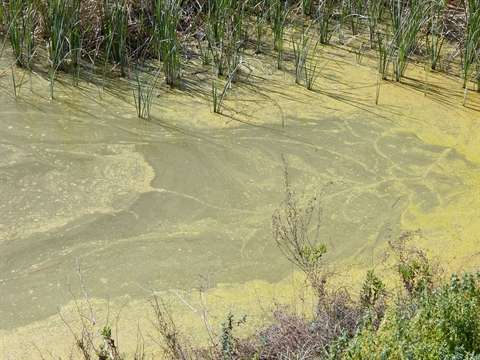Reducing nutrient runoff into the Doñana wetlands will prevent the spread of algal blooms, which climate change could otherwise worsen. Credit: Andy J. Green
Stronger local management can increase the resilience of nature to the impacts of climate change, writes an international team of researchers in Science. The authors examined three UNESCO World Heritage Sites: the Amazon rainforest, the Great Barrier Reef and Spain's Doñana wetlands. The team, led by Wageningen University, warned that deforestation and nutrient pollution can exacerbate the effects of rising temperatures.
Blue-green algae
Sarian Kosten is one of the authors of the study published in the academic journal Science on Friday 20 March. She works at the Institute for Water and Wetland Research at Radboud University and is specialised in the relationship between climate and water quality. "Blue-green algae cause many problems, one of which is that they can produce toxins, which threatens the large groups of birds that spend the winter in Spain's Doñana wetlands," says Koster. "The amount of blue-green algae as a proportion of the total algae biomass is highly dependent on the level of nutrients such as phosphorus and nitrogen in the water and the temperature. This is an interactive effect: if the proportion of blue-green algae is to be kept at the same level, the nutrient concentration needs to be reduced by 30 % for each degree increase in temperature."
Local and global
"The possibility to take local action to combat the negative effects of a global problem such as climate change applies to many other ecosystems. Local measures such as reducing pollution, water extraction, deforestation and fishing can make these ecosystems less vulnerable to climate change."
An earlier study by Kosten showed that the synergetic effects of temperature and nutrients in water apply globally. "We combined the data from a large number of shallow lakes located from sub-Arctic Europe to the very south of South America. If we want to prevent a dominance of blue-green algae in a future warmer climate, we need to further reduce the concentration of nutrients in water."'
Journal information: Science
Provided by Radboud University Nijmegen





















